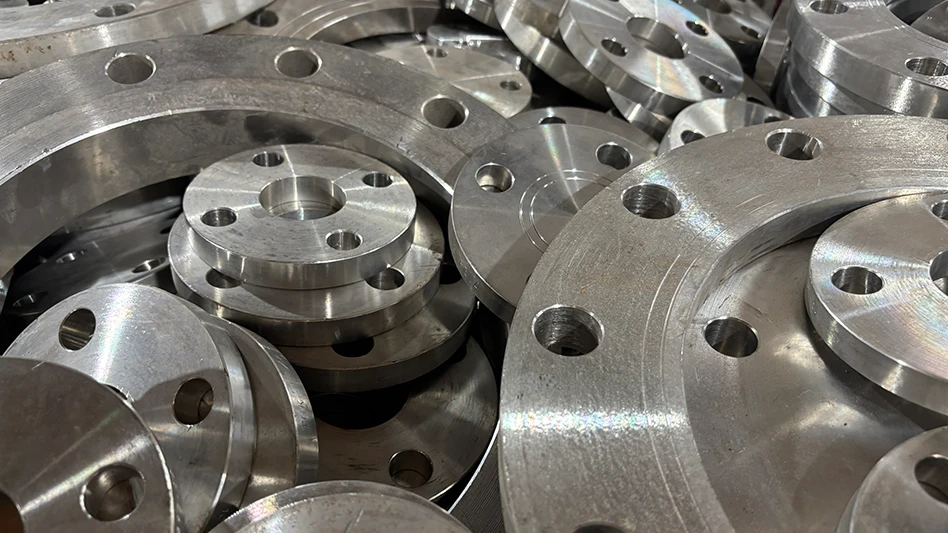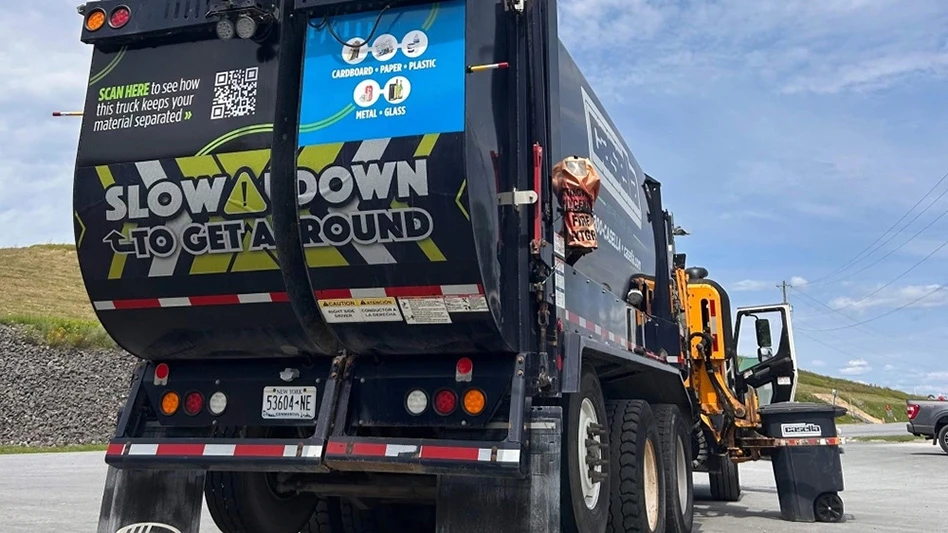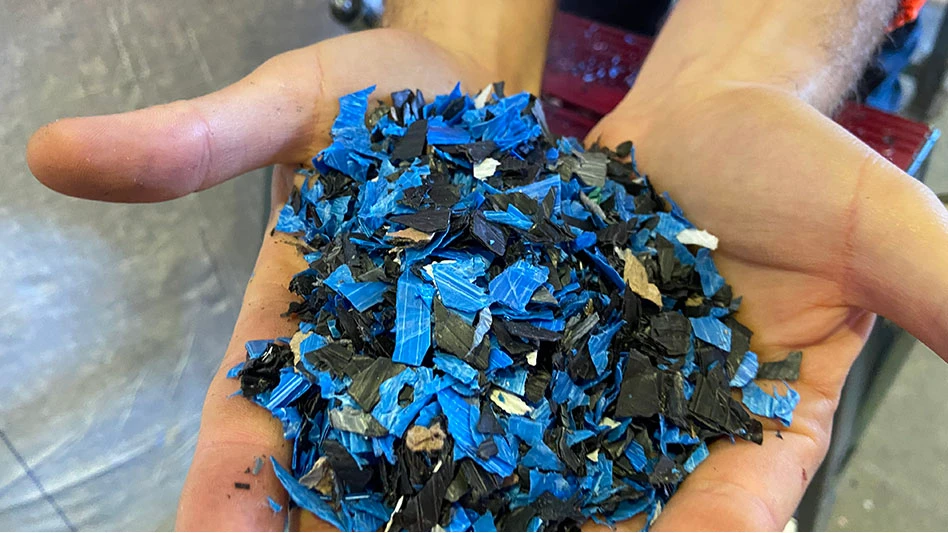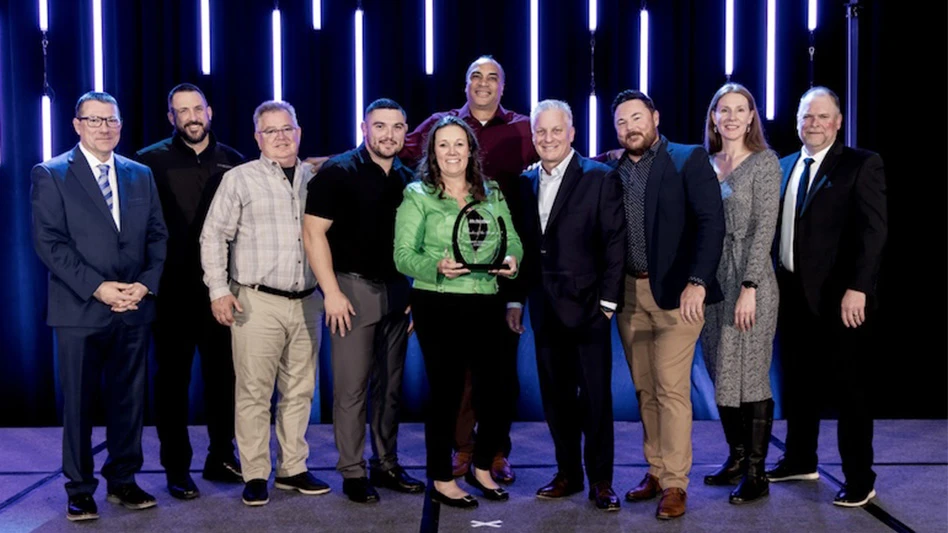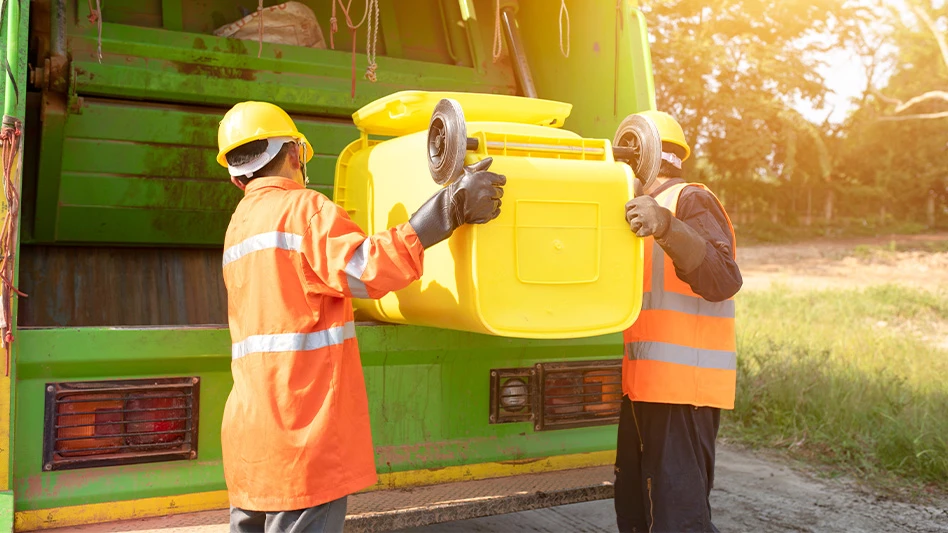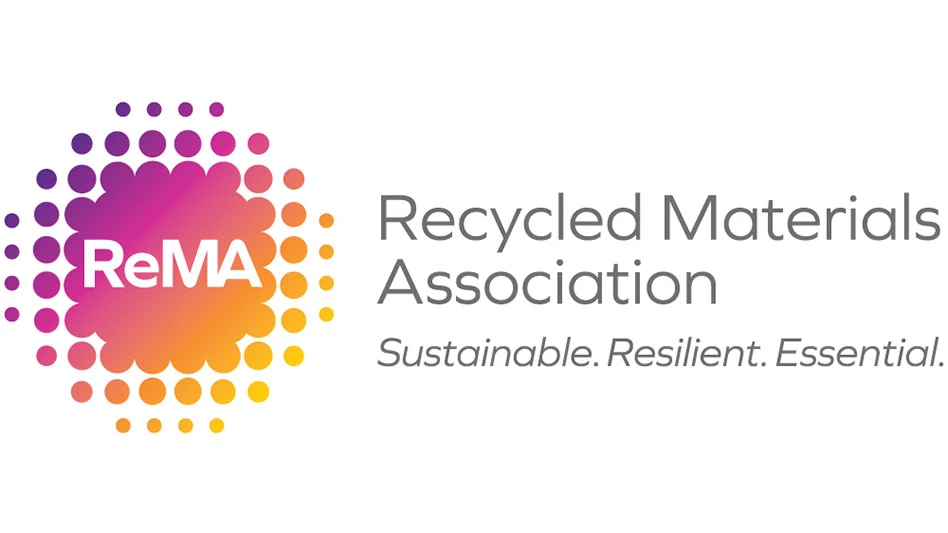P
roviding efficient and reliable service can be a management challenge for any recycling company. When that service isbeing provided to a set of customers that has unwillingly had recycling obligations placed upon it, the challenge can be even more formidable.In states where beverage container deposit-and-return laws are enacted, soda bottlers and beer distributors often find themselves in the position of being deeply involved in recycling because of a state mandate—not because they have chosen to make it a priority.
Such a situation can easily lead to tension, but Schupan & Sons, Kalamazoo, Mich., has entered what could theoretically be an acrimonious setting and created an opportunity for itself to assist the bottlers and distributors while gaining access to considerable numbers of aluminum, plastic and glass containers.
MANDATED OPPORTUNITY
Beverage distributors, regional bottling firms and retail grocers have all traditionally lobbied against mandatory container deposit and return systems. Their opposition is based on several factors, including that recycling is a far cry from their core business and that their facilities are not designed to act as repositories of unsanitary, potentially pest-attracting materials.
Despite the opposition of these industries, 11 states have enacted systems that require distributors and retailers to be in some way responsible for the return and recycling of aluminum, plastic and glass beverage containers.
In most of these states, traditional recycling firms have found roles to play as collectors, processors or marketers of these containers once they are ready to enter the recycling stream.
Schupan & Sons certainly fits the mold of a traditional recycling firm, with a background providing nonferrous and ferrous scrap recycling services to industrial accounts since 1968.
Dealing in aluminum scrap has been a part of the Schupan & Sons business since its inception, so gaining access to aluminum used beverage containers (UBCs) through the Michigan deposit-and-return system made sense for the company.
Tom Emmerich, president of the Schupan Recycling division of Schupan & Sons, says the Kalamazoo company has been involved with the state’s container deposit system since 1985, when the Schupan Recycling division was created.
Twelve years later, Schupan Recycling and aluminum recycler and reverse vending machine manufacturer Tomra of North America created a joint venture business called UBCR (Used Beverage Container Recovery) LLC, based in Howell, Mich.
UBCR, using reverse vending machine placements and a fleet of trucks, has become a dominant collector and processor in the Wolverine State’s container recycling system and markets itself as "the exclusive pick-up agent for the Michigan Soft Drink Association and the Michigan Beer and Wine Wholesalers Association."
The UBCR third-party pick-up method has become a preferred way for beverage distributors to manage their role in the deposit-and-return system.
| A BETTER WAY |
|
The Schupan Recycling subsidiary of Schupan & Sons, Kalamazoo, Mich., formed the UBCR (Used Beverage Container Recovery) LLC joint venture with Tomra North America, Stratford, Conn., in 1997. According to the UBCR Web site, the company was formed "to be an industry solution for the collection, transportation and processing of empty beverage containers in the state of Michigan." The company started with one driver, one tractor and six trailers, handling fewer than 10 million cases of bottles and cans from 13 stores for 10 distributors in its first year. Now, UBCR has more than 40 drivers, 20 tractors and 140 trailers and handles more than 100 million cases annually, serving some 540 retail locations and 140 distributors or wholesalers. Acting as the exclusive pick-up agent for the Michigan Soft Drink Association and the Michigan Beer and Wine Wholesalers Association, UBCR has concentrated on keeping backroom storage and collection areas clean and efficiently servicing reverse vending machines stores. On its Web site, UBCR remarks that it "operates around the clock (except Thanksgiving and Christmas Day)." The company’s operations are based in Howell and Grand Rapids, Mich. |
Says Emmerich, "The UBCR venture has been a good source of material for us. Containers are now more than 50 percent of the overall company’s business."
Although Schupan & Sons has a metals background, the company has built its depth of knowledge of the plastics and glass markets. "PET markets are now more sophisticated than they were 12 years ago, but the longer you do anything the better you get at it," says Emmerich.
MATTER OF TRUST
It has taken more than market knowledge and good processing operations for Schupan & Sons and its UBCR joint venture to succeed so well.
While each of those qualities helps, Emmerich says that providing market knowledge and reliable and helpful service has been the key.
"We've provided a lot of education to our customers, says Emmerich, who notes that while the customer owns the scrap, UBCR collects and processes the materials."
UBCR has earned the trust of its wholesaling and distribution customers. "The number one key is trust," Emmerich says. "We have done what we said we were going to do and we have earned their trust. Now Schupan & Sons has seen this become a very good business venture."
That trust is necessary because UBCR handles several steps in the process. "They trust that we are going to be able to perform and deliver on what we say we are going to do and that we are not going to steal from them," says Emmerich.
Beyond the trust pertaining to fiscal responsibility, the distributors must also trust that Schupan Recycling, Tomra of North America and their UBCR joint venture will continue to provide reliable collection and processing services.
For UBCR, this means maintaining and servicing a growing number of reverse vending machines and keeping trucks and drivers on the road.
The processing facilities must also be equipped to handle the relentless stream of containers generated every day at hundreds of collection points, such as grocery stores that are open 24 hours a day. "The containers never stop coming," says Emmerich. "You have to design systems that allow for back-up capacity and that can continue to operate even in the event of an equipment breakdown."
The third-party pick-up and processing system offered by UBCR has helped put in place a deposit-and-return system that minimizes the obligations of the beverage and grocery industries.
For Schupan & Sons, a firm with traditional scrap recycling roots, the involvement in the state system has been a net positive, says Emmerich. "It has been a very successful venture, as we have been able to grow throughout the years and provide a number of different services to bottlers and distributors."
The author is editor of Recycling Today and can be contacted at btaylor@gie.net.

Explore the March 2005 Issue
Check out more from this issue and find your next story to read.
Latest from Recycling Today
- Vermeer announces plan to build new facility in Des Moines metro area
- PureCycle, Toppan partner on packaging containing PCR
- LKQ to focus on simplification, productivity in uncertain demand environment
- Supreme Court strikes down IEEPA tariffs
- Redwood expands San Francisco R&D footprint
- Constellium posts record Q4 adjusted EBITDA
- QCC torches include customizable features
- Umicore finishes 2025 with increased earnings
